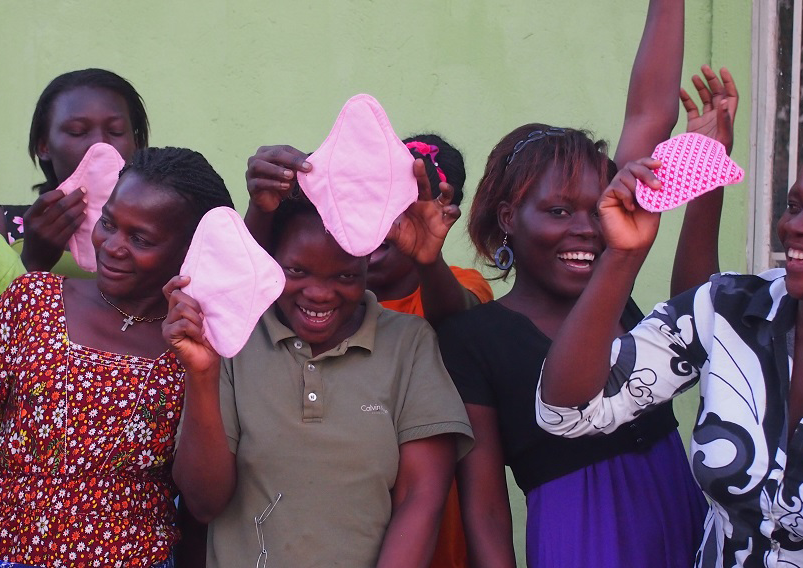For the sake of the millions of girls who miss vital schooling during their periods, we must dismantle the 'menstrual taboo'
It is time to invest in girls because they are people who deserve to reach their full potential

Imagine if you couldn't run or dance during your period.
Imagine if you believed you were cursed and dirty.
Imagine if you couldn't leave home for fear of staining your skirt.
Meet Mariam. When she bleeds every month she worries that she is sick and is afraid to run and dance. She has so many questions but is too shy to ask because menstruation is a big secret.
Pads are too expensive so instead she uses pieces of rags and even bits of mattress. She is always afraid they will leak.
Mariam is not alone. Over 4 million girls in Uganda and Kenya alone are being held back their periods.
Misinformation is systemic and ranges from doctors teaching that sex is the only cure for period pain to fears that pain killers can cause infertility. In addition to this, the topic is taboo and shrouded in myths that menstruating girls are dirty and can contaminate others. Some women are afraid to walk through a field of groundnuts when they are menstruating because they believe they may die, others worry that bloodied pads will be used in witchcraft against them.
The negative consequences of ‘the menstrual taboo’ are felt not just by individuals but by communities and economies as a whole. Over half of girls in East Africa miss important schooling during menstruation because they can’t access pads or the information they need about their own bodies and a recent study in Bangladesh found that 73 per cent of female factory workers were missing 6 days of work a month during menstruation.
Irise advisor Joanne Nakawawa knows first-hand the challenges girls face; “We used to use old t-shirts and other cotton fabric as sanitary towels. Other girls use dried maize cobs as tampons, toilet roll, absorbent leaves, etc. Some choose to not bother going to school at all, especially those whose periods lasted longer than usual. The shame of blood leaking through your skirt, boys calling you names, to mention but a few, makes you hate being a young healthy woman.”
Today is Global Menstrual Hygiene Day, which aims to break the silence around this neglected women’s rights issue.
Too often in development, investment in women is justified in terms of the benefits they bring to their children and wider society instead of to women themselves, and as a result women specific issues (such as menstruation) do not receive the attention they require. According to a recent study, even at UN bodies tasked with realising the human rights of women and girls the issue remains taboo. This taboo needs to be dismantled as part of broader work to develop meaningful gender equality. It is time to invest in girls because they are people who deserve to reach their full potential.
The focus of this year’s Menstrual Hygiene Day campaign has been the hashtag #MenstruationMatters. Menstrual hygiene is about much more than inadequate sanitation, it is an opportunity for the global community to say to disadvantaged girls and young women, ‘You Matter. Period.’
Join our commenting forum
Join thought-provoking conversations, follow other Independent readers and see their replies
Comments